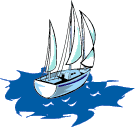
"Cruisin' the Caribbean"

GOALS:
1. Work cooperatively and effectively with a partner.
2. Complete the map quiz on geographical knowledge of the Caribbean.
3. Research and compile a final report on a Caribbean Island with a partner.
4. Research and compile a presentation on a Caribbean Island with a partner.
RESOURCES:
1. Maps of the Caribbean, one per student.
2. Resource materials (encyclopedias, books, magazines, travel agencies, internet, etc.)
TIME:
This lesson will require between 10 hours and 14 hours. (Part 1 [45 minutes to 1 hour]; Part 2 [30 minutes]; Part 3 [7 to 9 hours]; Part 4 [1 to 2 hours].)
PROCEDURE:
Introduction:
This lesson will act as an introductory lesson to the final unit project. With a partner, students will research the unique cultures and geography of the Caribbean Islands over the next two weeks, and together create a final report and presentation on a specific Caribbean Island.
Part 1:
Step 1- Map Quiz- Each student will receive a blank map of the Caribbean Islands. They will try to label as many islands as possible.
Step 2 - As a class, go over the correct location of each island and discuss the geography of the lesson.
Part 2:
Step 3 - Each student will pick a name of an island out of a hat and pair up with the student who has the same island. Each pair will be researching an island from the Caribbean as the final unit project. A typed report 3-4 pages in length will be required. Each pair is required to have at least five references, one being an encyclopedia and another being a travel agency. Each pair is responsible for compiling the following information:
Geography:
-Where is the island located?
-Size of the island
-Climate
-Terrain
-Special features of the area
Cultural/Historical:
-What are the people like?
-What is the language?
-Population
-Religion
-What do they eat?
-Clothing
-Traditions
-Influential leaders
-Government
Interesting Characteristics
-Commerce
-Socio-economic status
-Employment
-Living conditions
-Architecture
Travel Guide
-Tourist Attractions
-Currency/Travelers Checks
-Restaurants
-Airfare
-Hotel Accommodations
-Public Transportation
-Passport Information
-Postal Service
-Recreational Activities
-Luggage Weight Limit
-Customs
-Hospitals
-Personal Hygiene and Safety (Immunizations/Drinking Water/Etc.)
-Car Rental
-Electricity Systems (Adapters)
-Metric System
Information will be gathered throughout the next two weeks. All information should be summarized in the 3-4 page typed report. A class presentation is also required which may be in the form of:
-Power Point presentation
-Brochure
-Collage
-Poster board
-Mobile
This presentation should provide information about the researched island in addition to what has already been reported on in the final report. Notify students that the final unit report and class presentation are due on the final day of the unit.
Part 3:
Step 4 - Pairs should be given class time to research their island and begin writing first draft of paper. It is expected that the students will use their time at home as well to research and complete the first draft.
Step 5 - Students will receive time in class to type their first drafts. Two copies should be printed out for peer evaluation.
Step 6 - Peer Evaluation: Students will distribute their two copies of the first draft to two other peers for editing.
Step 7 - Pairs will reconvene to review the suggested changes from the peer evaluations and make the necessary changes on the first draft. Students should have already saved their paper in their personal file. Pairs must print out the finalized paper after making appropriate changes.
Step 8 - Students will receive time to work on their presentations. They must bring necessary materials to class.
Part 4:
Step 9 - Students must turn in the final copy of their paper on the day of presentations.
Step 10 - Pairs must present their finalized project to their peers on the final day of the unit.
ASSESSMENT:
1. Teacher and students will make assessment of partner work. (Criteria for success = See Teacher and Student Rubrics for Partner Work.)
2. Each student must complete and hand in the map quiz. (Criteria for success= X number of islands properly located. Reasonable criteria % = 80% of islands properly located.)
3. Each pair must turn in a 3-4 page typed report on their specific Caribbean Island. (Criteria for success= Will vary among teachers.)
4. Teacher and audience will make assessment of partners' presentations. (Criteria for success= See Audience Rubric and Teacher Rubric for Partner Work.)
CURRICULAR STRANDS AND MAJOR CONCEPTS:
1. Language Arts - Reading research material; communicating with partner and class; participating and listening to oral presentations from peers.
2. Social Studies - Researching geographical and cultural information of the Caribbean Islands.
3. Art - Creating an art project for presentation to the class.
4. Math - Calculating expenses; budgeting.
POSSIBLE EXTENSIONS:
1. Compare and contrast the geographical features of your home town/state with that of the Caribbean Islands.
2. Expand on history of the island's culture through legends and folk lore.